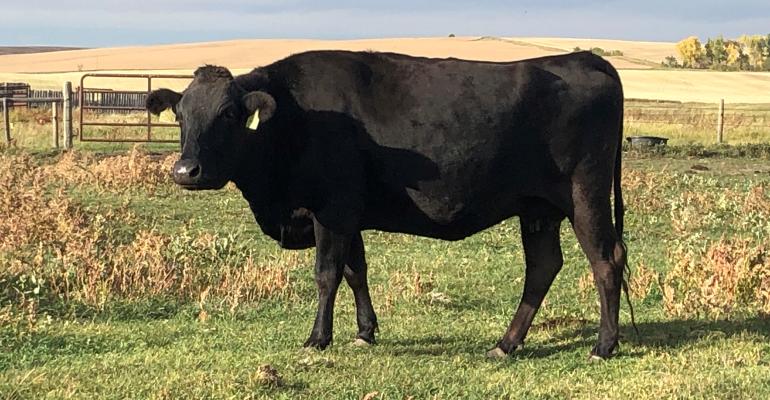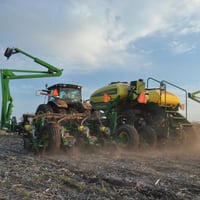Although China purchased a record amount of U.S. farm exports over the past two years, it wasn’t...
Wagyu Cattle Becoming Popular in the U.S.

As more people discover the advantages of Wagyu high quality beef, a growing number of cattle breeders are raising this unique breed. Some ranchers who have never raised cattle before are also giving it a try.
Jerry Reeves, retired from the Animal Science Department at Washington State University, was one of the first Americans to become familiar with this breed. Today, he runs a large herd of black Wagyu that winter along the Snake River in Washington and summer in the Idaho mountains.
Reeves was part of a team sent by WSU to Japan in 1989, to assess the Japanese beef industry. “We knew the Japanese were going to take quotas off imported meat, so the university sent us over there to figure out how our state could capitalize on sending meat to Japan. On the West Coast, we are closer to Japan than beef producers in the Midwest. Any advantage we might have over the corn-fed beef in the Midwest would be helpful,” he explained.
“We hadn’t seen Wagyu before, and when we saw their carcasses, we realized the Japanese beef was superior to ours. We thought the best way to attract Japanese buyers would be to bring some of those genetics to the U.S. to produce high-quality carcasses. Our competition for this export market would be Australia, and if we could send a better-quality meat into Japan, we’d have more of the market,” said Reeves.
“The Japanese government let us bring some Wagyu into the U.S. At that time, I had Angus and Simmental and decided to try Wagyu,” he said. “They have some unique traits that are different from American beef cattle, and the first imported breed that wasn’t brought in with a goal of trying to make our cattle bigger. They are smaller than our typical beef cow; we were trying to increase quality rather than growth and production traits,” said Reeves.
The first Wagyu breeding program in the U.S. was focused on producing bulls that could be bred to cattle here (especially Angus) to produce crossbreds for the Japanese market.
“For a while all the half-blood Wagyu meat produced was exported to Japan. The best thing that happened to our market was Mad Cow Disease. We couldn’t export meat to Japan; it all had to go into our restaurants. Americans were finally able to try Wagyu. They got it pretty cheap that first year because cattle feeders needed to find a home for the meat,” explained Reeves.
After the American people tried it, they wanted more. Now there’s a bigger market for this meat in the U.S. than in Japan. Introduction to Wagyu started the evolution of a new concept in beef production in the U.S.
“It is highly marbled, with more tenderness and flavor. These cattle don’t look like our cows and cattlemen have to learn about these unique animals. Now many large ranches in the Western U.S. breed their heifers to Wagyu bulls for ease of calving, and receive a premium for the calves,” said Reeves.
Bob Estrin, Lone Mountain Ranch near Golden, New Mexico, feels this breed has moved from a small niche industry to a nationally recognized and thriving enterprise. Calves are small at birth, and this factor, coupled with premiums at market, is attractive to many ranchers. Wagyu-sired calves often bring more money per pound than other calves when they enter the feedlot.
Estrin says these cattle don’t fit the market for commercial beef cattle. You can’t just take Wagyu to a sale barn. “Wagyu cattle look so different that buyers of commercial cattle who are unfamiliar with this breed won’t give top dollar for them. Yet marketed properly, Wagyu bring substantial premiums,” he said.
EDITOR’S TAKE:
Wagyu beef is unlikely to replace more traditionally raised beef in the U.S. anytime soon. Although consumer demand is growing, it is still a “premium” product and not as attractive to the price conscious shopper. The other issue is producing Wagyu beef is a slower, more intense process that requires special management oversight. Overall, it is a great tasting product, but definitely one that will lighten your pocketbook a little more than traditional beef. Never-the-less, Wagyu producers could be in your area and are worthy of your attention. Let them know there are plenty of products aimed at cattle producers in the AgPack® mix. This will allow you to conquest sales, capture more margin and help the customer realize a greater return on their truck investment that is not available at any non-CAD dealer!








